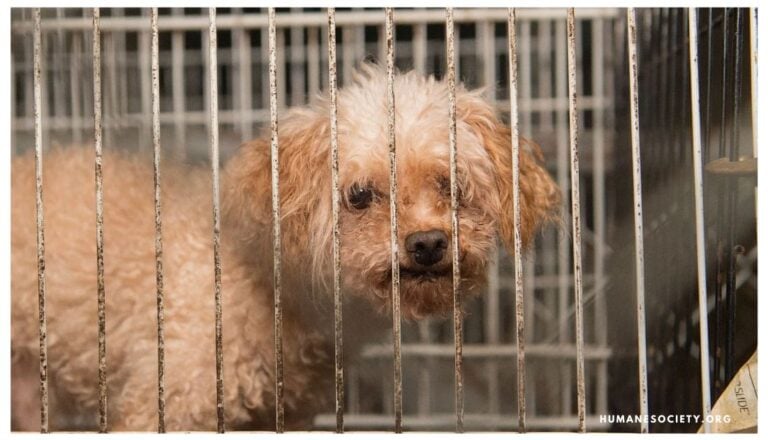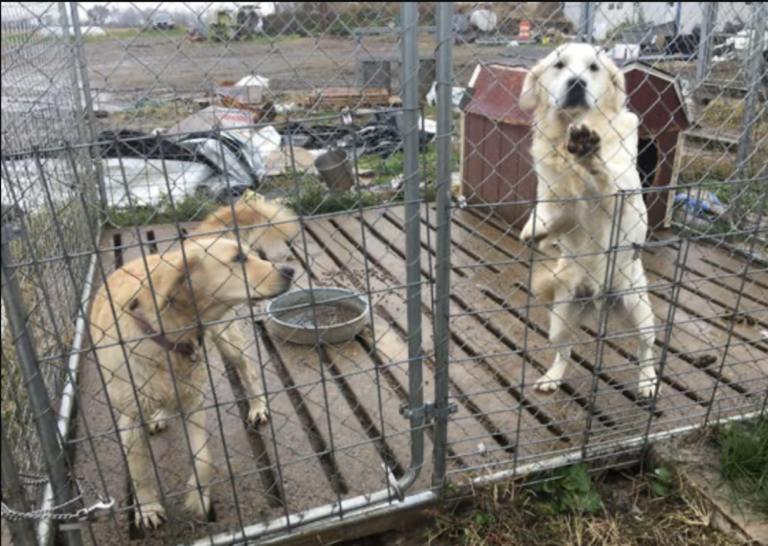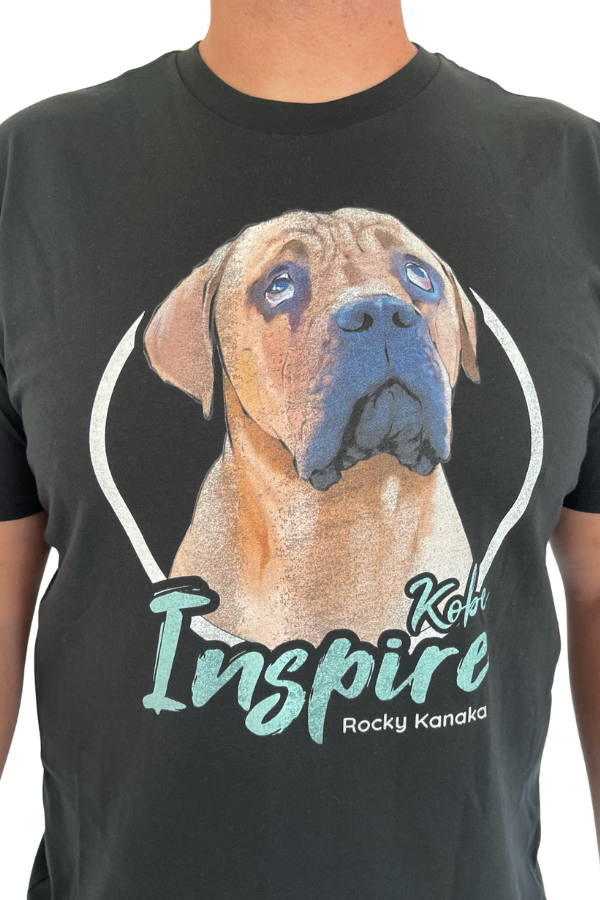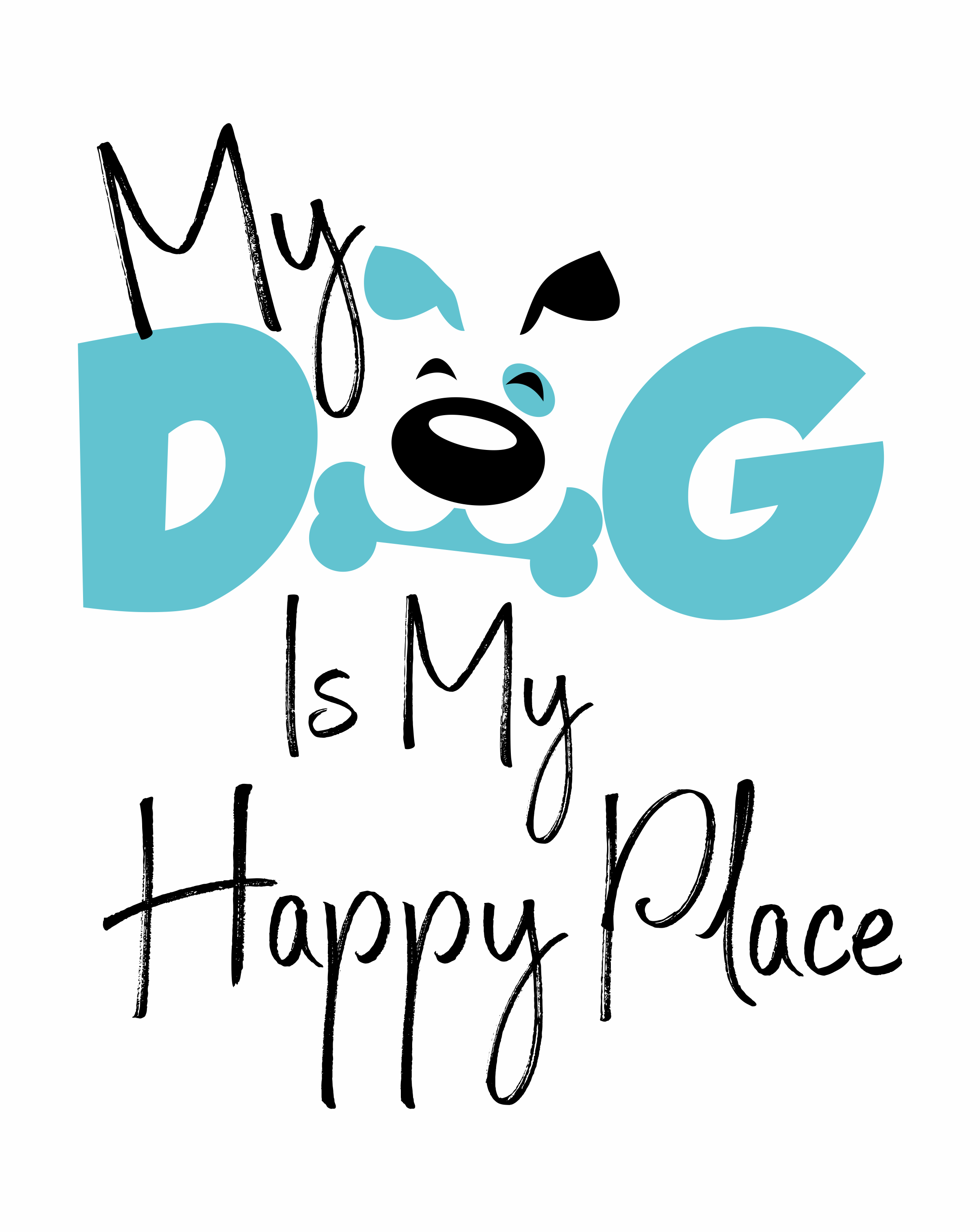These Are The Worst Puppy Mills In The Country
Content Warning: This blog discusses animal abuse and neglect and shares photos of neglected dogs.
You’ve probably heard that U.S. animal shelters have an overpopulation problem. Every year, more than 3.1 million dogs enter the shelter system, and nearly 400,000 of these pups are tragically euthanized. But where are these dogs coming from? How could there possibly be millions of homeless pets overfilling our shelters?
It’s time to get real about the disastrous impact of backyard breeders and puppy mills.

Keep reading to get answers to questions like: what are puppy mills and backyard breeders? Why is it bad to buy a puppy from a puppy mill or backyard breeder? Are puppy mill dogs really being mistreated? And much more.
Defining Backyard Breeders & Puppy Mills
So, what is a puppy mill and what is a backyard breeder?
Puppy mills are dedicated facilities owned by unregistered breeders/groups of breeders used only for breeding dogs. Puppy mills are considered commercial facilities but are not registered/licensed with kennel clubs or ethical breeding programs. Puppy mills obtain commercial licensing through a loophole in the Animal Welfare Act, which we’ll discuss later.
Backyard breeders are individuals or families who breed their family pets at home. Not only are backyard breeders unlicensed and unaffiliated with any ethical breeding programs, but they are also not required to obtain licensing through the USDA and are 100% unregulated. Backyard breeders do not spay/neuter their dogs, often to the detriment of their mental and physical well-being.
TLDR: Puppy mills are mostly unregulated commercial facilities dedicated to breeding puppies and backyard breeders are individuals who breed their family pets at home.

How Bad Is the Backyard Breeding & Puppy Mill Problem?
Around the country, thousands of animals are seized annually from illegal backyard breeding and puppy mill operations. These dogs are destined for pet stores or are sold using social media advertising to unsuspecting and eager dog lovers looking for purebred dogs and designer breeds. Often, the breeds of dogs most impacted are the most popular and sought-after breeds since backyard breeders and puppy mills are always motivated by profit.
“Right now [the] top breeds that are being bred and sold on the streets or from back yards are going to be the Frenchies, Pomeranians, the English bulldog. The bulldogs themselves never go out of trend,” said Alberto Ortiz, field operations supervisor for El Paso Animal Services in Texas, in an interview with KFOX14.
Ortiz went on to say that Poodle mixes (Doodles) are another common breed sold by unethical breeders and people are willing to pay $3,000-$4,000 for the puppies. Unfortunately, none of them, at least in El Paso, are safely bred. “We don’t have a single registered breeder within the City of El Paso,” Ortiz adds grimly.
While backyard breeders in particular may easily disguise themselves as animal lovers, breeding without appropriate knowledge is unethical, full stop. Add to this the fact that many backyard breeders over-breed their pets and inevitably continue to breed for profit, and it’s easy to see the problem.
The Horrible Hundred
States like Texas and California have some of the worst overcrowding of animal shelters, but the issue is nationwide. The Humane Society of the United States publishes an annual report of all known “problematic dog breeders and puppy brokering facilities”—AKA backyard breeders and puppy mills.

The Horrible Hundred list is not only a tool for potential puppy buyers but also to demonstrate “the scope of the puppy mill problem in America today, with specific examples of the types of violations that researchers have found at such facilities, for the purposes of warning consumers about the inhumane conditions that so many puppy buyers inadvertently support.”
Unsanitary and crowded living conditions, dogs found without access to food and water, dogs with obvious injuries, and accounts of very sick animals are just a few of the topics covered by the report, which also explicitly names the offending facilities.

The list includes 100 breeders and breeding facilities annually, and through the exposure created by the Humane Society at least 240 facilities featured on prior Horrible Hundred lists have been permanently closed!
See 2023’s Horrible Hundred report in full here.
Why Aren’t Puppy Mills & Backyard Breeders Illegal?
The Animal Welfare Act—passed in 1966—explicitly outlines minimum care standards for commercially bred cats and dogs, but it is woefully full of loopholes.
The Animal Welfare Act only applies to large-scale commercial facilities, so many smaller puppy mills fly under the radar. As for backyard breeders—not considered commercial dog breeders despite selling their puppies for profit—there are no laws or legislative acts requiring them to pass/meet the requirements of any inspections, licensing procedures, or standards of care.
Basically, backyard breeders are 100% unregulated under federal law, though some states have tried to crack down with municipal legislation.
Consequences of Backyard Breeding & Puppy Mills
Stories of dozens of dogs being seized from puppy mills and backyard breeders are a dime a dozen in the news. You’ve probably heard them referred to as hoarding situations in some cases, and eventually hear the happy stories of the dogs finding new homes. Unfortunately, simply rescuing dogs from puppy mills and backyard breeders isn’t a long-term solution.

Many of the dogs end up in local animal shelters and may be so emotionally and/or physically traumatized that they can’t find an adoptive home and are eventually euthanized.
Often, dogs seized from puppy mills are found in what is called a “whelping barn” where female dogs are confined in cages to give birth and nurse their puppies for the first few weeks of their lives. For example, 131 dogs were rescued from a puppy mill in horrific conditions in rural Iowa in mid-August 2023.
The conditions of the whelping barn were described as having “numerous mothers, adolescents, pups in state of distress…animals dirty and matted. Whelping floors and walls of the primary enclosure for mothers and pups were not routinely cleaned or kept sanitary. [The whelping barn also had an] over-abundance of flies, both living and deceased,” according to a report by the Sioux City Journal.
Simply removing dogs from these horrible conditions isn’t enough, even for those dogs. Puppy mills breed and sell their puppies whether or not they have serious health issues. Many will inherit serious genetic conditions, and develop illnesses related to malnutrition, exposure to unsanitary living conditions, infections, etc. Congenital defects and life-threatening illnesses aren’t the only issues faced by unethically bred dogs.
In a study titled Puppy Mills: The Scientific Evidence of Harm They Cause To Dogs from Tufts University found that “when compared with a large group of pet dogs, former puppy mill breeding dogs were reported as showing significantly higher rates of physical health problems, fear, house-soiling, and staring blankly into space.” Findings in this study also indicated that dogs from unethical breeding environments were less trainable, less energetic, and less social.

Where To Find Responsible Breeders
Next time someone asks you “What’s a puppy mill?” you’ll have not only an answer but plenty of information to point your friends and family to responsible breeders. One of the best places to start is with the American Kennel Club’s breeder marketplace where you can find licensed, kennel club-affiliated, reputable breeders dedicated to preserving breeds and healthy, happy canine bloodlines.
Better yet, consider adopting a dog from your local shelter! Help address animal shelter overpopulation and find your new best friend all at once.
Related Articles:
- This Mama Dog Endured Unbelievable Circumstances In A Puppy Mill. Her Luck Changed When This Happened
- Puppy Mill Made This Golden Retriever Produce 100 Puppies
- Puppy Mill Dog ‘Rescued’ Into House With Hundreds of Dogs




